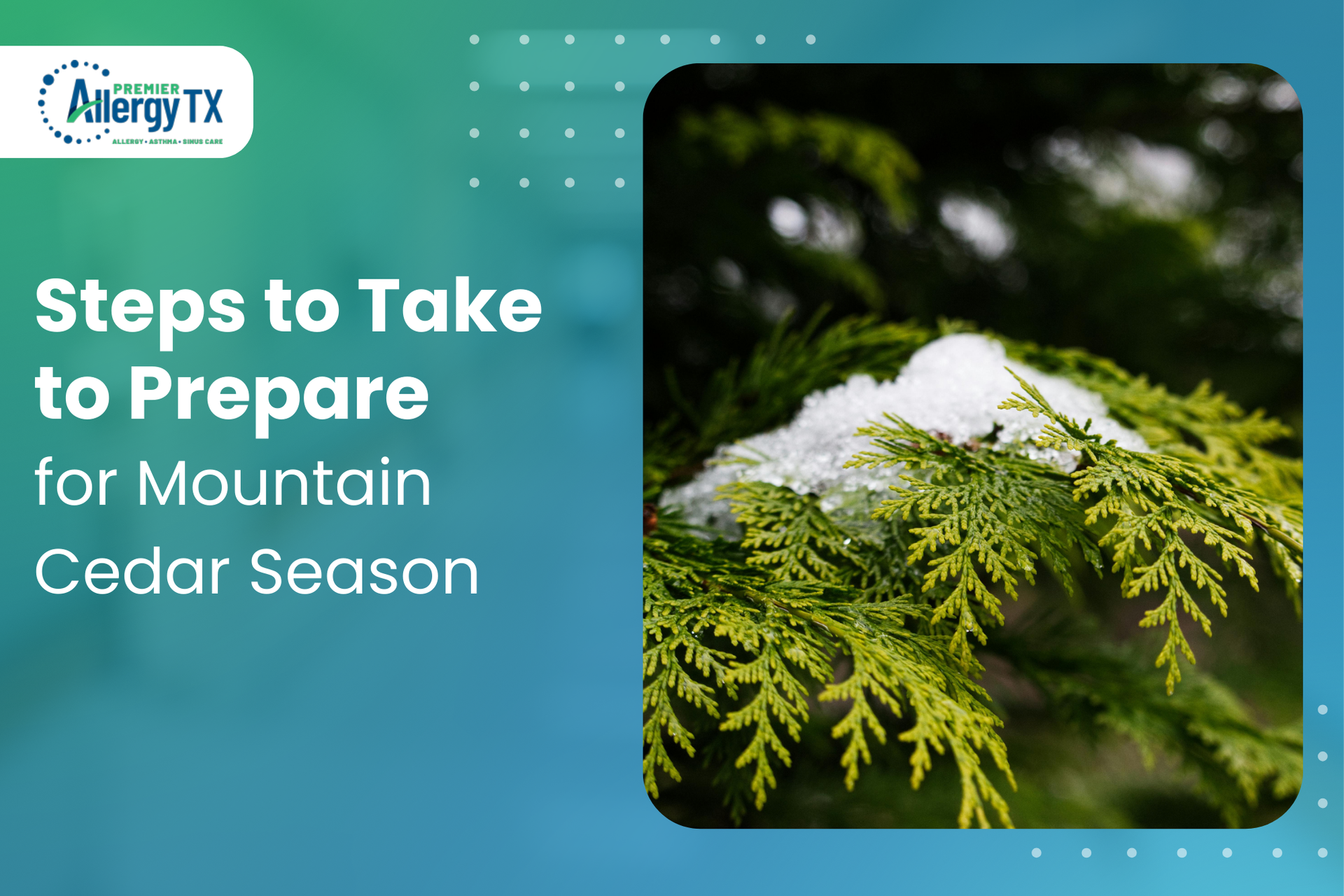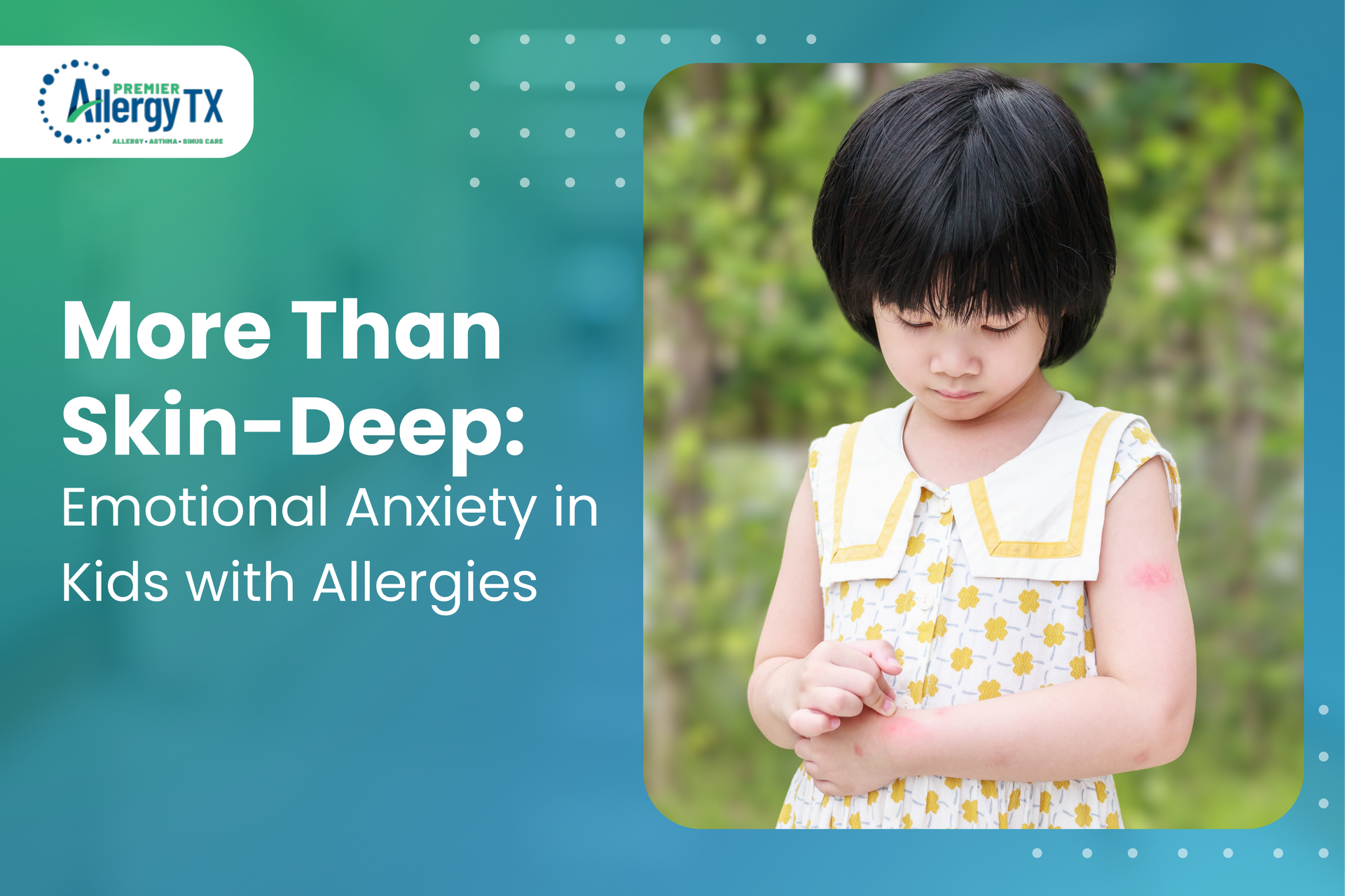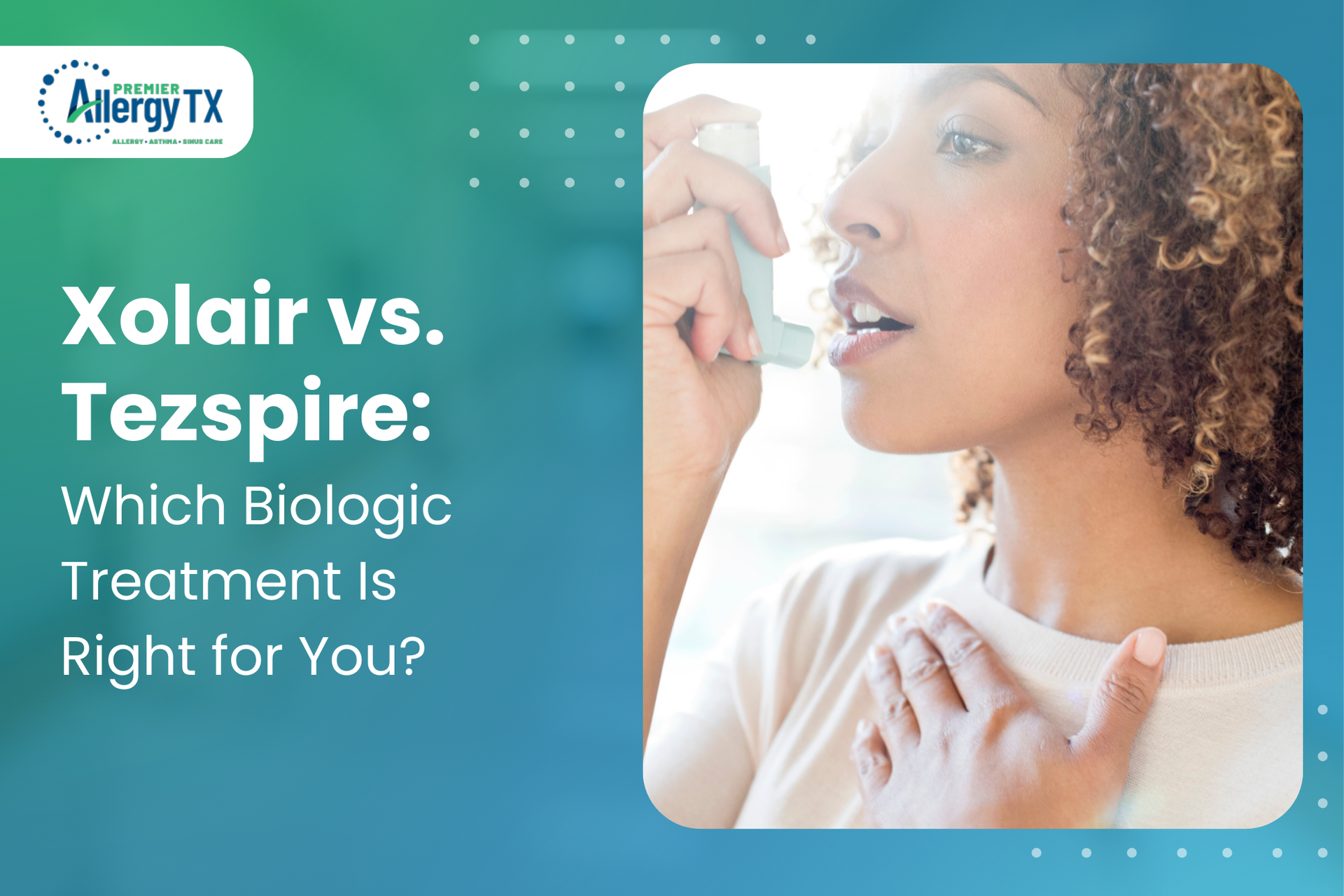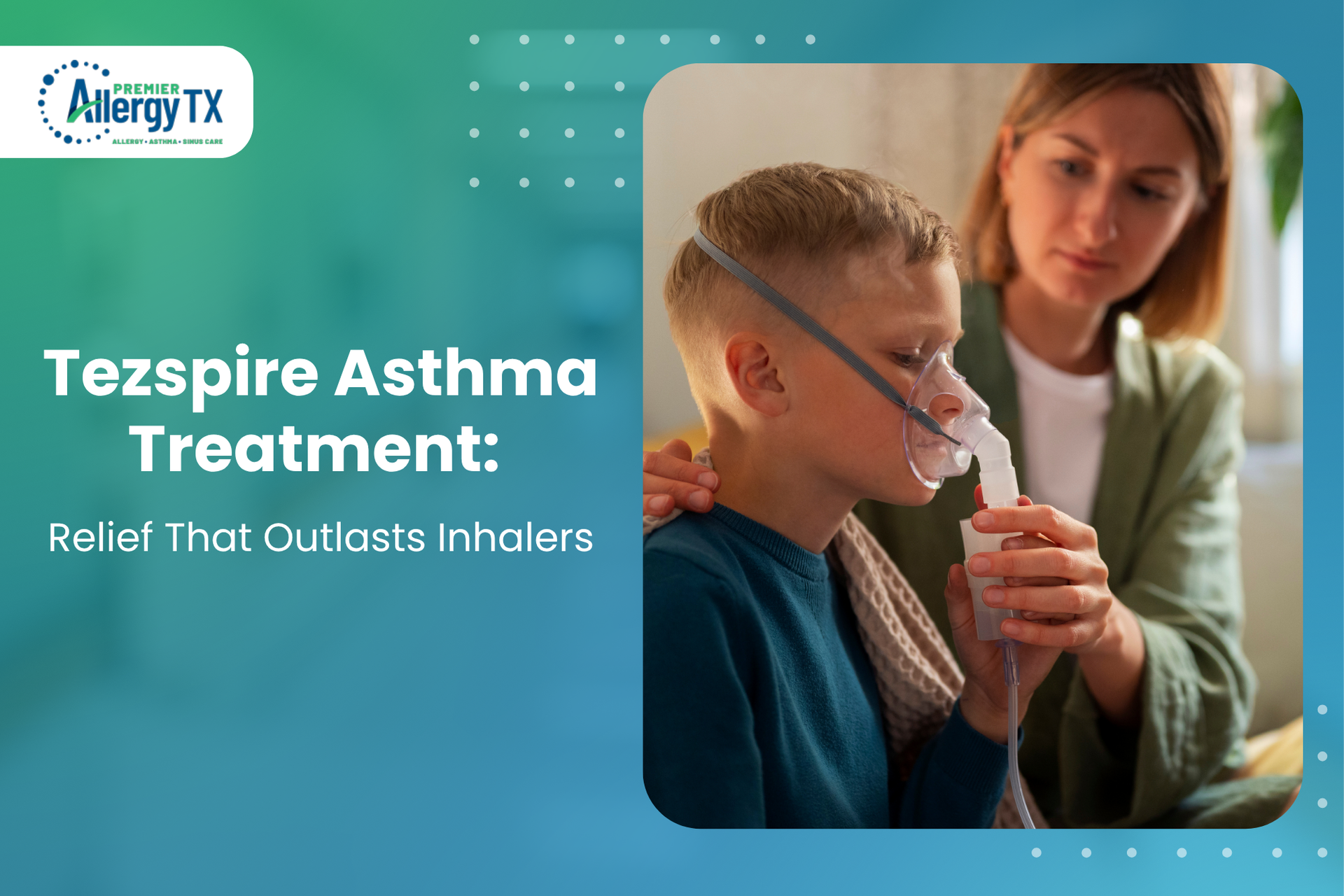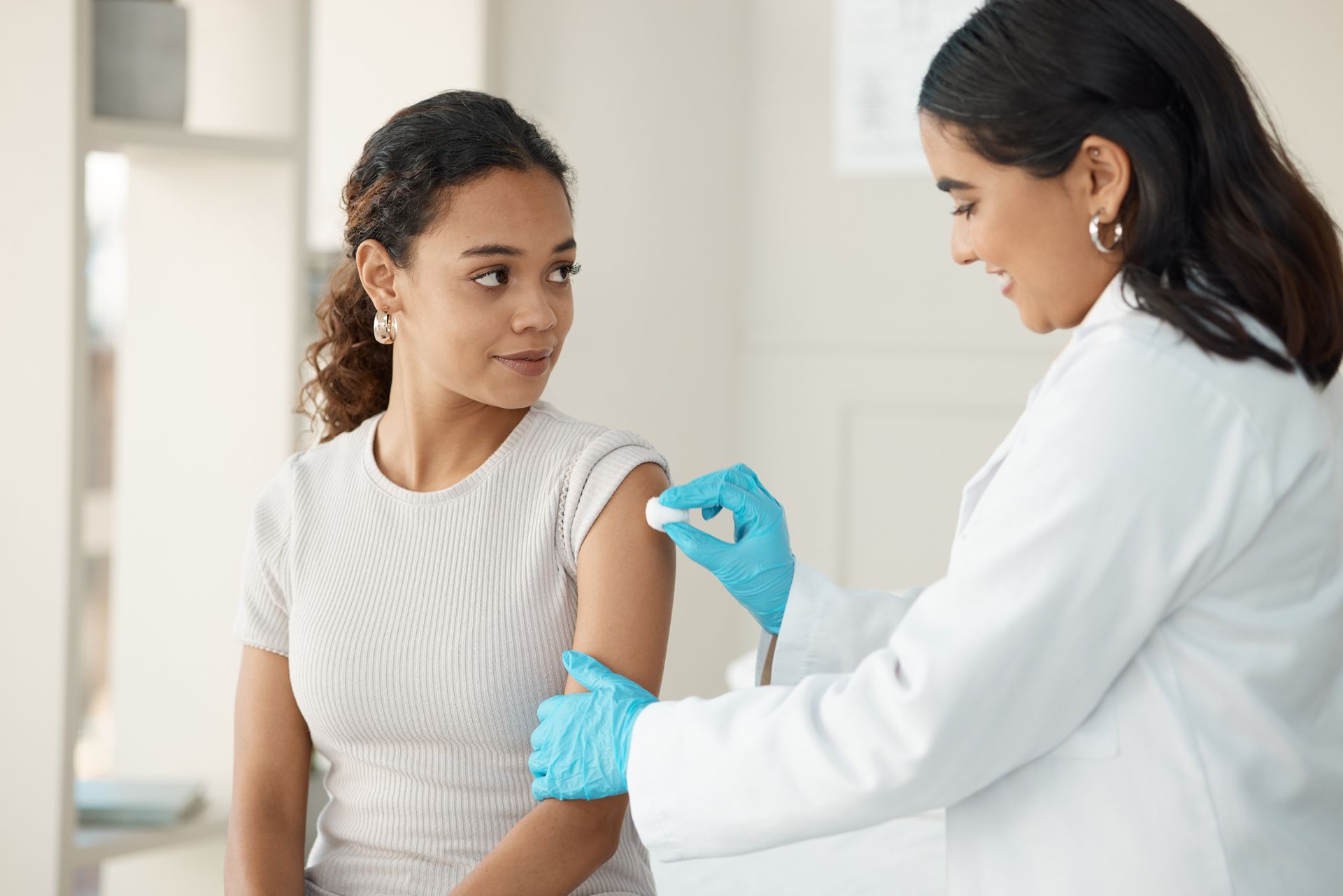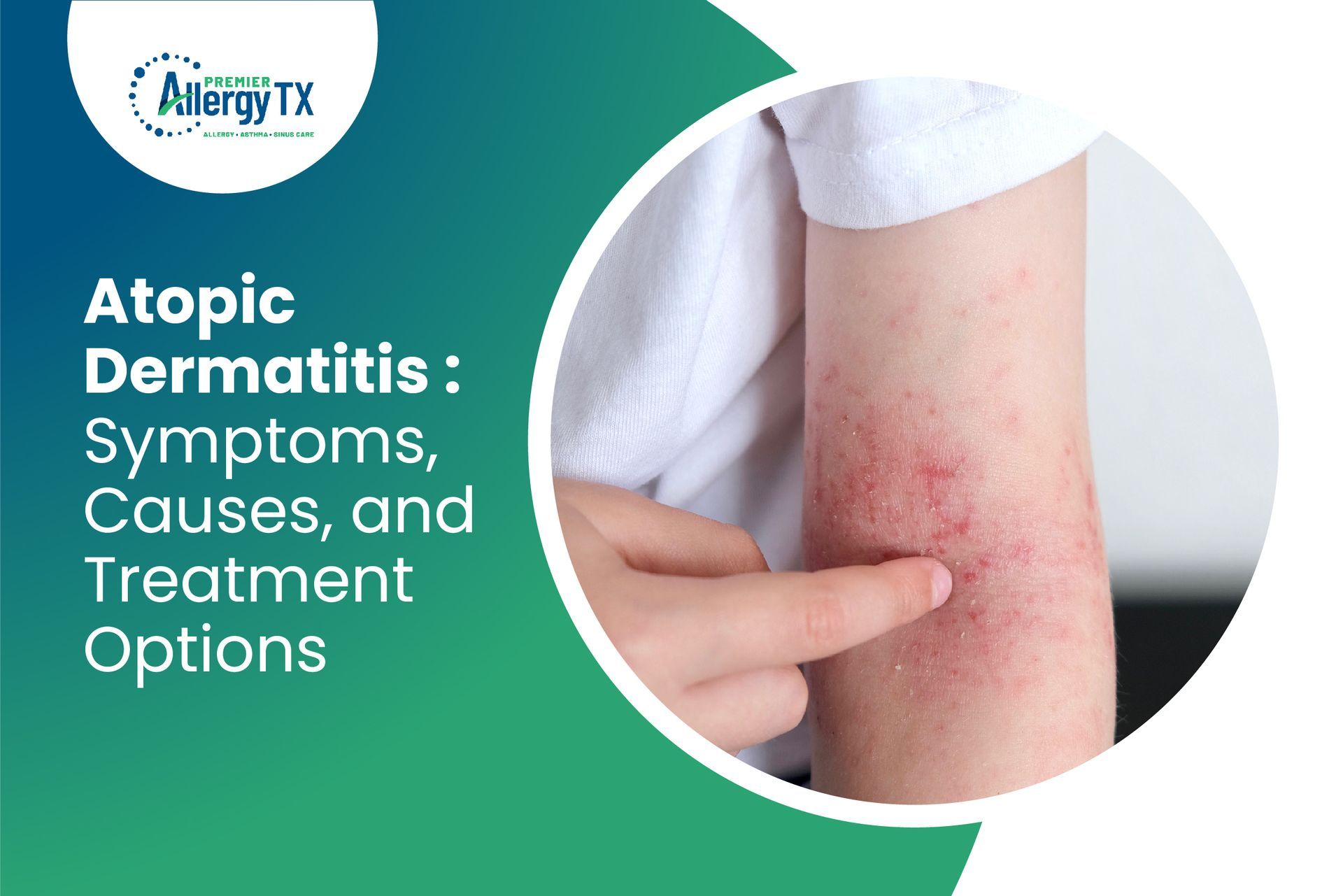Millions of people struggle with allergies every day, but for women, they can be wildly unpredictable. One day, you enjoy a meal without a problem, and then, out of nowhere, the same dish causes
severe allergy symptoms. What changed?
Hormonal changes during puberty, pregnancy, or menopause can turn mild allergies into major disruptions, making everyday triggers like pet dander, dust, or certain foods harder to handle.
This Women’s Month, let’s talk about how hormones affect allergies, why they affect women differently, and how
Premier Allergy of Texas can help you manage them.
Allergies Getting Worse with Hormonal Changes?
How Hormones Influence Allergy Symptoms in Women
A 2025 study published in Frontiers suggested that women are more prone to allergies, asthma, and autoimmune conditions than men, largely due to hormonal influences on the immune system. Hormonal changes and allergies are closely connected as fluctuations in the female sex hormones, estrogen, and progesterone, can cause allergy symptoms in women to flare up or calm down without warning.
- Estrogen
boosts immune activity, which can make allergic reactions stronger.
- Progesterone typically calms the immune system but can overly suppress it and tighten airways, worsening
asthma and allergies in women.
Since hormone levels constantly change, allergies may feel worse or improve at unexpected times. Let’s take a closer look at how different life stages influence allergies:
Common Allergy Triggers in Women
As women’s bodies go through natural changes, the immune system’s response to allergens can shift as well. From puberty to menopause, hormonal fluctuations can shape women’s immune health and how the body reacts to triggers like:
Environmental Allergens
- Pollen:
A major cause of seasonal allergies, leading to sneezing, runny nose, congestion, and itchy, watery eyes.
- Dust Mites and Mold:
Common indoor allergens that can cause chronic congestion, coughing, and itchy skin.
- Pet Dander:
A frequent allergy trigger causing sneezing, itchy throat, watery eyes, or even skin irritation.
Food Allergies
- Dairy & Nuts:
Common food allergens that can cause bloating, nausea, skin rashes, or even life-threatening anaphylaxis.
- Shellfish: A food allergy that some women develop later in life, leading to itching, swelling of the lips or throat, or digestive issues like stomach pain and nausea.
- Gluten Sensitivity: A condition some might have that makes digesting gluten difficult, resulting in bloating, tiredness, joint pain, or skin problems like eczema.
Skin Sensitivities
- Eczema and Contact Dermatitis: Allergens in skincare products, soaps, and laundry detergents can trigger red, itchy, and inflamed skin.
- Cosmetic Allergies: Irritants in makeup, perfumes, and hair products can trigger skin allergies in women, causing redness, swelling, or a burning sensation.
Medication Reactions
- Antibiotics and NSAIDs:
Some women develop allergies to medications like penicillin or ibuprofen, leading to hives, swelling, shortness of breath, or dizziness.
- Birth Control and Hormones:
In rare cases, hormonal contraceptives can trigger rashes, swelling, or worsen existing allergy symptoms like sinus congestion or headaches.
Effective Allergy Management and Treatment
Dealing with allergy flare-ups can be frustrating, especially when symptoms seem to come and go without warning. But with the right approach and
allergy treatment for women, you can take control and feel your best.
Here are some women’s allergy relief tips from our allergy doctors at
Premier Allergy of Texas to help you manage flare-ups and improve your quality of life:
Simple Lifestyle Adjustments
Allergies can be unpredictable, but a few simple adjustments can help you feel more in charge. Avoiding triggers, being mindful of your diet, and switching to hypoallergenic products can ease symptoms and improve your daily comfort.
- Limit exposure
as much as possible, use air purifiers, and wash the bedding once a week.
- Make dietary changes
by removing triggers from your meals to prevent reactions.
- Protect your skin with hypoallergenic skincare products to prevent irritation.
Medications
Medication can provide quick and effective relief for allergy symptoms. Depending on your specific allergies, different treatments may be recommended by your allergy doctor.
- Antihistamines
reduce sneezing, itching, and runny nose caused by seasonal or environmental allergies.
- Nasal sprays and decongestants help relieve sinus congestion, pressure, and inflammation for easier breathing.
- Allergy Shots (Immunotherapy) is a long-term treatment that gradually makes the immune system less sensitive to allergens.
Holistic Approaches to Allergy Relief
Some women prefer a more natural approach to managing allergies. Focusing on diet, hydration, and stress management can help keep even the most
severe allergy symptoms under control.
- Maintain a proper diet and hydration
by eating anti-inflammatory foods like omega-3s and antioxidants to reduce allergy symptoms and drinking plenty of water to support your immune system.
- Practice stress management techniques
such as yoga, deep breathing, or meditation to lower stress and prevent allergy flare-ups.
When to See an Allergy Doctor
If your allergies are becoming more difficult to manage, disrupting your daily life, or causing severe reactions, it’s time to seek expert help.
At Premier Allergy of Texas, we understand how challenging allergies can be, especially when hormonal changes make symptoms unpredictable. Our allergy doctors provide comprehensive testing to pinpoint your specific triggers and create a personalized treatment plan with options like prescription relief and immunotherapy.
Special Considerations for Women’s Health
Women’s allergy care often requires special considerations, especially during pregnancy, breastfeeding, and other hormonal transitions. Understanding how changing hormones affect your allergies can help you make informed decisions and choose the best treatment options.
Pregnancy and Allergies
Pregnancy changes how your immune system responds to allergens, making it crucial to adjust your allergy management plan. Women are more prone to
various allergic reactions when expecting, with food allergies being especially common.
Safe Medication Options
Some allergy medications aren’t safe during pregnancy, so talk to your doctor about the best options.
Non-Medicated Relief
Saline nasal sprays, steam inhalation, and avoiding triggers can help manage symptoms safely.
Breastfeeding and Infant Allergy Risks
Breastfeeding mothers should be mindful of their diet, as certain allergens can pass through breast milk and affect infants.
Watch Your Diet
What you eat while breastfeeding can impact your baby’s risk of developing allergies. Avoiding common allergens may help reduce sensitivity.
Early Food Introduction
Some experts recommend introducing allergenic foods
(like peanuts) early to reduce the risk of allergies later on.
Get Women’s Allergy Relief Tips from Trusted Allergy Doctors
Women’s immune health deserves attention, especially when it comes to hormonal changes and allergies. This Women’s Month, let’s make your well-being a priority.
You don’t have to suffer through severe allergy symptoms or guess at the best treatment. With
Premier Allergy of Texas’s expert care and personalized solutions, you can take control of your health and feel your best year-round.
Schedule an allergy consultation with Premier Allergy of Texas today and find a personalized treatment plan that works for you.
Celebrate Women’s Month by Prioritizing Your Health





